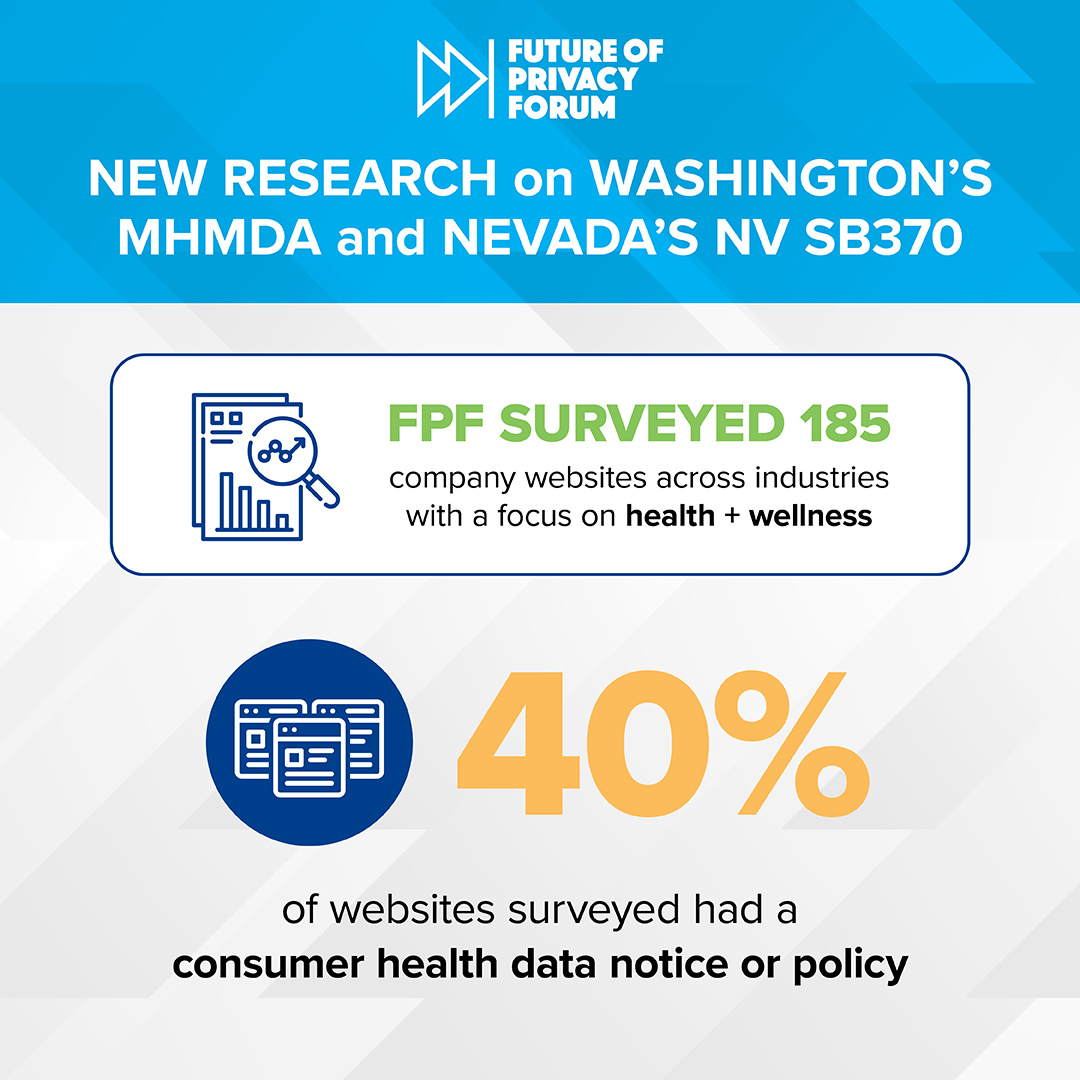
Consumer Health Data Privacy Notices by the Numbers
Today, FPF is releasing an infographic that provides insights into how organizations are responding to the transparency requirements of recently enacted U.S. state health privacy laws. The infographic reflects a survey of privacy notices on the websites of 180+ companies across a variety of industries and sectors, from pharmaceutical to apparel. Two key laws enacted […]

Contextualizing the Kids Online Safety and Privacy Act: A Deep Dive into the Federal Kids Bill
Co-authored by Nick Alereza, FPF Policy Intern and student Boston University School of Law. With contributions from Jordan Francis. On July 30, 2024, the U.S. Senate passed the Kids Online Safety and Privacy Act (KOSPA) by a vote of 91-3. KOSPA is a legislative package that includes two bills that gained significant traction in the […]

The AI Regulatory Landscape in the U.S
the ai regulatory landscape in the u.s This Training Has Been Postponed to February 11th – Registration re-opens soon FPF is pleased to offer our evergreen topic this fall, The AI Regulatory Landscape in the U.S. As AI increasingly captures public attention and experts voice optimism for its potential benefits and concerns about its potential negative […]

Unlock the Power of NIST RMF in AI: Practical Insights from Real-World Applications
UNLOCK THE POWER OF NIST RMF IN AI: PRACTICAL INSIGHTS FROM REAL-WORLD APPLICATIONS SEPTEMBER 26, 2024 @ 1:00 – 3:00 PM EST FPF is pleased to offer a new training session, Unlock the Power of NIST RMF in AI: Practical Insights from Real-World Applications. This session is designed to enhance understanding of the National Institute […]

Unpack the Executive Order on AI: Federal Actions and Future Directions
Unpack the executive order on ai: federal actions and Future directions SEPTEMBER 17, 2024 @ 1:00 – 3:00 PM EST FPF is pleased to offer a new training session, Unpack the Executive Order on AI: Federal Actions and Future Directions This course will review the Biden Administration’s October 2023 Executive Order on the Safe, Secure, […]

FPF Training Program 2024 – The AI Regulatory Landscape in the U.S (Topic Page)
the ai regulatory landscape in the u.s FPF is pleased to offer one of our four AI courses: The AI Regulatory Landscape in the U.S to you and your team. As AI increasingly captures public attention and experts voice optimism for its potential benefits and concerns about its potential negative impacts, the U.S. policy landscape has […]

FPF Training Program 2024 – U.S. Privacy Landscape (Topic Page)
U.S. Privacy Landscape FPF is pleased to offer the training topic: U.S. Privacy Landscape to you and your team. Commercial privacy in the United States is regulated through a maze of state and federal laws and regulations. There are sector-specific privacy laws at the state and federal levels, active federal enforcement bodies with broad mandates […]

Reflections on California’s Age-Appropriate Design Code in Advance of Oral Arguments
Co-authored with Isaiah Hinton, Policy Intern for the Youth and Education Team Update: On Wednesday, July 17th, the U.S. 9th Circuit Court of Appeals heard oral arguments for an appeal of the District Court’s preliminary injunction of the California Age-Appropriate Design Code Act (AADC). Judges Milan Smith Jr., Mark Bennett, and Anthony Johnstone appeared interested […]

A First for AI: A Close Look at The Colorado AI Act
Colorado made history on May 17, 2024 when Governor Polis signed into law the Colorado Artificial Intelligence Act (“CAIA”), the first law in the United States to comprehensively regulate the development and deployment of high-risk artificial intelligence (“AI”) systems. The law will come into effect on February 1, 2026, preceding the March, 2026 effective date […]

Top Six Major Privacy Enforcement Trends: A U.S. Legislation Retrospective
Enforcement activity intensifies as U.S. consumer privacy laws continue to evolve and come into effect. In 2023 and 2024 alone, there have been dozens of enforcement actions at the U.S. federal and state levels, some of which reveal or touch on significant throughlines for privacy policy issues, such as what constitutes a privacy violation or […]
